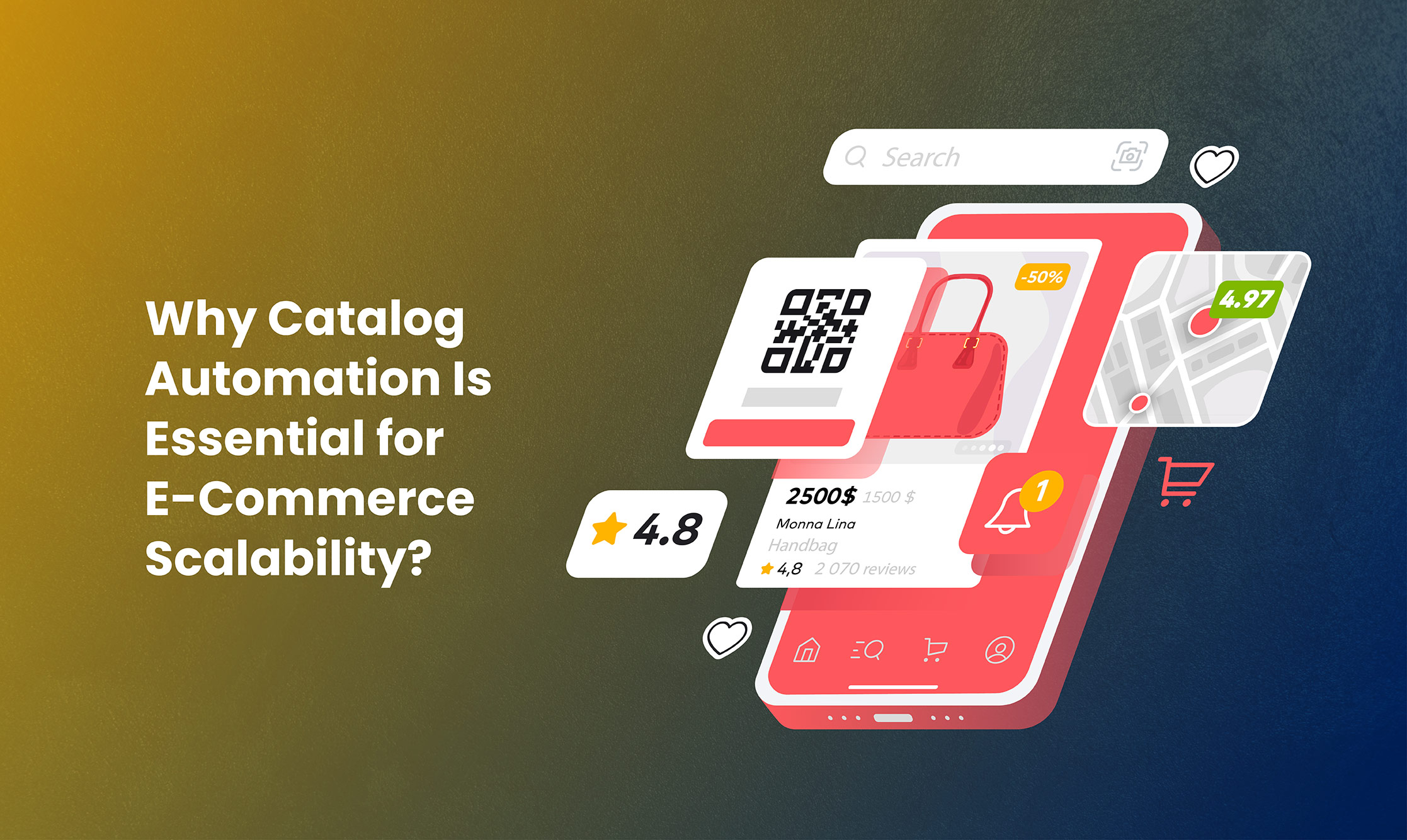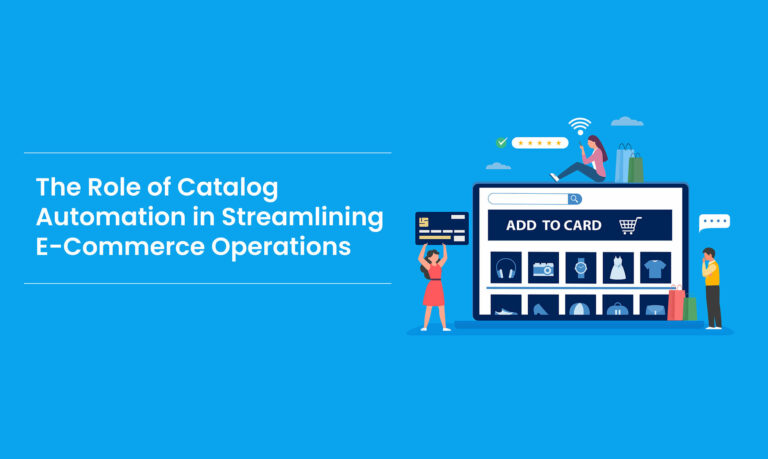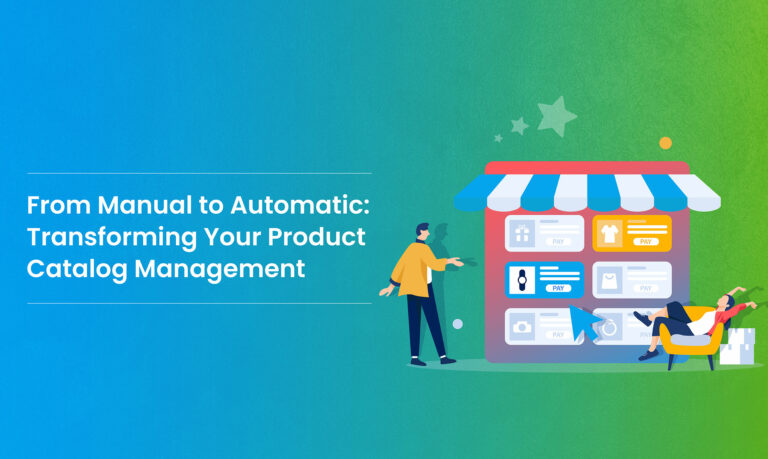Scalability in e-commerce refers to a business’s ability to handle increasing online traffic, order volume, and data without compromising performance or customer experience. But as more products, customers, and demands come in, it gets tricky. E-commerce companies need to keep up with all this while making shopping easy for everyone. Against these obstacles, catalog automation shows up as a key fix that helps companies increase efficiency, improve scalability, and simplify operations. This article explores the advantages, methods for implementation, and practical applications of catalog automation in the context of scalability in e-commerce.
The Significance of E-Commerce Scalability
Simply put, scalability in e-commerce is like how well an online shop can grow without things going wrong. Here’s why it’s important:
- Handling Growth: It means the shop can deal with more customers and products without crashing, especially during busy times.
- Keeping Things Fast: A good online shop stays quick and reliable even when lots of people are using it. This makes customers happy and keeps them coming back.
- Saving Money: Scalability helps shops save money by using resources wisely. They only use what they need, which keeps costs down.
- Making Shopping Easy: A good shop gives customers a smooth experience no matter how busy it is. This makes them want to come back and tell others about it.
- Trying New Things: Scalability lets shops try out new stuff without worrying about their website breaking. This helps them stay ahead and try out new ideas.
- Selling Everywhere: It’s important for shops that want to sell in other countries. They need to handle different money, languages, and shipping without any problems.
- Managing Information: Scalability helps shops handle all the info about customers and what they buy. This helps make the shop better for customers.
Challenges in Managing E-Commerce Catalogs
Managing e-commerce catalogs can be a complex and challenging task due to various factors. Here are some of the key challenges:
- Handling Lots of Products: Online shops often have many items for sale, sometimes thousands or even millions. To keep track of all these products, they need strong systems to organize and update information about them.
- Different Types and Details of Products: Many products have different versions, like different sizes or colors. Managing all these variations, along with other details like prices and how much is left in stock, can be hard and lead to mistakes if not done well.
- Making Sure Information is Right: It’s important to have accurate and consistent information about products everywhere they’re listed, like on the website, app, or other places. If information is wrong or old, customers might be unhappy, return things, or not trust the store anymore.
- Managing Pictures and Info: Online stores have lots of pictures, descriptions, and other info about products. Handling all this content, making sure it’s good quality, and getting it to show up well in search results needs good processes and tools.
- Changing Prices and Deals: Stores often change prices and have sales to keep people interested. Keeping track of all these changes across a big catalog and still making money can be tricky and needs smart strategies and systems.
- Handling Products from Start to Finish: Products have different stages, like when they’re first introduced, updated, or stopped being sold. Managing all these stages, including launching new products and getting rid of old ones, needs good processes and systems.
- Selling in Different Places: When stores start selling in other countries, they need to change things like languages, money, and rules to fit each place. Handling all these differences and still making everything look the same can be hard and need a lot of work.
- Making Sure Everything Works Fast: As catalogs get bigger and more complicated, the store’s website might slow down or have other problems. Making sure the systems that manage the catalog can handle all this without slowing down the website or making it hard for customers to find things is really important.
The Role of Catalog Automation
Catalog automation uses the latest technology to make managing product catalogs easier. It uses special computer programs and smart math rules to do things like entering product information, updating it, and making sure it’s the same everywhere. This saves a lot of time and makes fewer mistakes compared to doing it all by hand. Plus, it can instantly update information so everything stays current on all the different places where products are listed.
Benefits of Catalog Automation for E-Commerce Scalability
The adoption of catalog automation offers numerous benefits that are instrumental in driving scalability in e-commerce:
- Getting Things Done Faster: Using automation means employees don’t have to type in information or do the same tasks over and over. They can spend more time on important stuff like making products better, advertising, and talking to customers.
- Making Fewer Mistakes: When things are automated, there are fewer chances for people to mess up. This means that all the information about products will be right everywhere, making customers happier and less likely to return things or leave bad reviews.
- Putting Products on Sale Quicker: With automation, businesses can put new products on sale faster. This helps them keep up with what customers want and what’s popular so they don’t miss out on sales.
- Growing Without Problems: Automated systems can handle more products and more customers without needing a lot of extra help from people. This means businesses can get bigger without things getting too complicated or expensive.
- Making Shopping Easy Everywhere: Automation makes sure that everything looks and works the same, whether customers are shopping on a website, app, or somewhere else. This makes it easier for them to buy things and makes the business look good.
Implementing Catalog Automation
The implementation of catalog automation involves several key steps:
- Assessing Current Processes: Take a good look at how you currently manage your product info. Find out what’s hard or causing problems, and see where using automation could make the most difference.
- Selecting the Right Tools: Choose software that can help you automate tasks and fit with what your business needs, how much you can spend, and how much you plan to grow. Make sure it can do things like moving lots of product info around, changing it all at once, and working with other programs you use.
- Data Cleanup and Standardization: Before you start using automation, make sure all your product info is correct and looks the same everywhere. This might mean fixing mistakes, organizing things better, and making sure everything follows the same rules.
- Customization and Integration: Change how the automation works to match what your business needs. Make sure it works with the other computer programs you use, like ones for selling stuff online or keeping track of inventory.
- Training and Adoption: Make sure everyone knows how to use the new tools and processes. Show them why it’s better than how things were before, and help them see how it can make their work easier and better.
Conclusion
Catalog automation is super important for online shops to grow in today’s busy world. When businesses use automation to manage their product lists, they can work faster, make fewer mistakes, and get new products out to customers quicker. This helps them grow and keep up with the competition. As online shopping keeps changing, using automation will be key for businesses to get bigger, try out new ideas, and make customers happy.So, if businesses want to do well online, they should definitely use catalog automation. It helps them grow, stand out, and do well in the long run. Rubick.ai offers you cutting-edge solutions to automate your catalogs and scale your business with ease.


